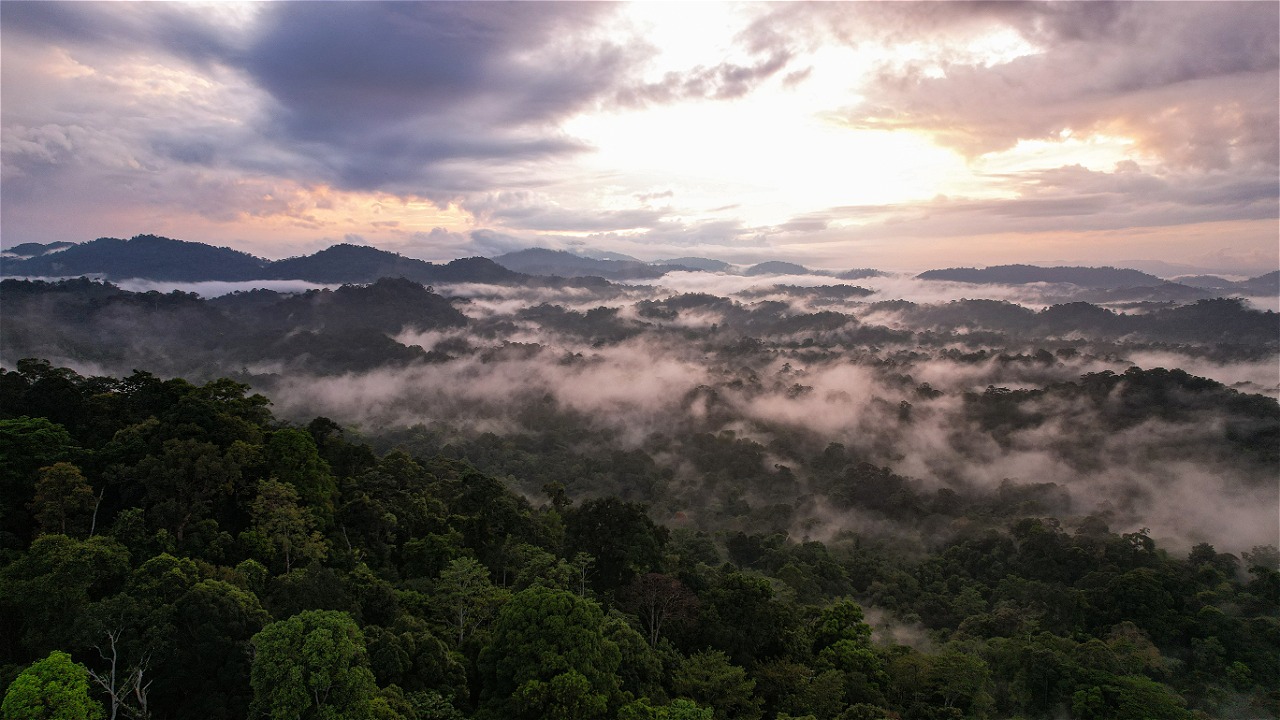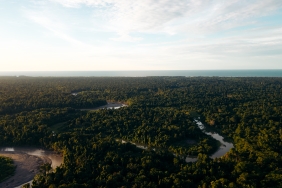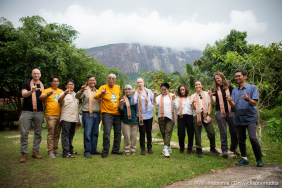BUILDING THE COMMITMENT OF THE PEOPLE OF BENGKULU IN CARING FOR NATURE THROUGH THE ORGANIC FARMING FIELD SCHOOL PROGRAM
By: Hijrah Nasir
Bukit Barisan Selatan National Park covers three provinces, namely Lampung, South Sumatra and Bengkulu. Since the last 20 years, WWF has been assisting communities in Lampung who live around the forest area. The year 2017 marked the beginning of WWF's assistance to communities living around the Bukit Barisan Selatan National Park area in Bengkulu. Since February 2017, WWF has provided training to farmers in two villages, namely Sukajaya and Trijaya, Nasal District, Bengkulu Regency with a Field School approach to organic farming with coffee commodities.
On January 23-24, 2018, WWF conducted a socialization of the program plan in Kaur Bengkulu called "Desa Membangun" program. The terminology of Desa Membangun is used to emphasize that the village can develop itself more independently with all the potential resources owned by the community. This socialization was carried out in 3 villages, namely Sukajaya, Trijaya, and Tebing Rambutan which was attended by at least 150 people who are the community in 3 villages.
This socialization was held in order to ask for support from the village government and the community related to WWF programs that will be run in these villages. This is considered important to build community commitment in supporting environmental conservation efforts and economic empowerment of local communities through their full involvement and support. Remarks were given by the Village Head who hoped that this activity could provide benefits for the welfare of the community and WWF assistance is expected to explore the potential and recognize the problems faced in the village so that it can be a reference to build a better village.
Project Manager of WWF Indonesia - Southern Sumatra Program, Yob Charles, in his presentation said that there are 3 main programs that will be conducted in 3 villages, namely assistance to the village for the preparation of Village Medium Term Development Plan (RPJMDes). One part of the RPJMDes is to explore the potentials, problems and threats faced by the village, so that it is expected that the community group of each hamlet can be involved to develop a good village planning program and village spatial plan and make a picture through the village spatial plan that can be a guideline for the preparation of the Regional Spatial Plan (RTRW) of Lampung Province. It is expected that in the future there will be a group that can monitor village spatial planning. Previously, in November 2017, WWF had trained cadres from the assisted villages including the people of Sukajaya, Trijaya, and Tebing Rambutan Villages to take part in ToT (Training of Trainers) for the preparation of RPJMDes.
In addition, another program is to train agricultural cadres and produce field school trainers from the village. For this reason, in February, WWF will hold a training for facilitators (ToT) for organic farming for one month which will be attended by representatives from 3 villages with coffee, cocoa, rubber, and pepper commodities. It is expected that the local trainers can train other farmer groups in their villages. The concept of sustainable agriculture is expected to be adopted in the village. To strengthen the concept, farmers can build integration between farms and livestock.
Pak Subali as a Field School facilitator from WWF gave an example of the integration of coffee plantations and chicken livestock implemented in his area. Farmers need livestock manure to make organic fertilizer, while livestock can meet their food and nutritional needs by eating Arachis pitoi plants planted under coffee trees. This plant is believed to inhibit the growth of weeds, and help restore soil fertility because it has the ability to fix nitrogen like other legumes, and also as animal feed. Meanwhile, other livestock can get feed from canopied trees planted between coffee trees that function to protect coffee and their leaves can be used as animal feed.
The agricultural field school concept is a sustainable agriculture concept that is built by making farmers the subject of research through a series of trials conducted in experimental plots. For 4 months, farmers will make observations, identify crop pests and other crop problems, causes, and find out the solutions as well as learn about ecosystem functions in general. So what is developed in this approach is agriculture based on scientific knowledge. The approach developed is expected to be a solution to the problem of agriculture that has been practiced unsustainably by many farmers with excessive use of chemical pesticides and insecticides that are harmful to the ecosystem. In addition to successfully increasing agricultural productivity, this approach has also been proven to be able to reduce production costs due to the low production inputs that must be purchased from outside by farmers. It is hoped that this can be widely developed by the community to reduce dependence on chemical fertilizers.
Training facilitators in the village is one of the efforts to increase the capacity of farmers to provide training to other farmers. This is considered more effective because the language delivered by local facilitators will be more easily understood by the community.
In addition, the village also faces challenges with the community's dependence on the company as laborers in oil palm plantations. So there needs to be anticipatory steps from the community if the oil palm plantation is no longer productive with all the consequences it has for the land. With the great potential that is owned in the village, it needs to be supported by good governance.
The next program is training in making animal-proof cages. This was done to anticipate the arrival of wildlife that could prey on the community's livestock, given the village's location close to the forest area. Of all these programs, the most important thing is how to build an agreement with the community to protect the environment with local wisdom or culture that is owned and can be embedded in people's lives.
This step is expected to be able to become a bridge to strengthen commitment and change the mindset of the community in building relationships with the surrounding nature which can be a concrete effort on how the community can be at the forefront of protecting forests in the Bukit Barisan Selatan National Park.





